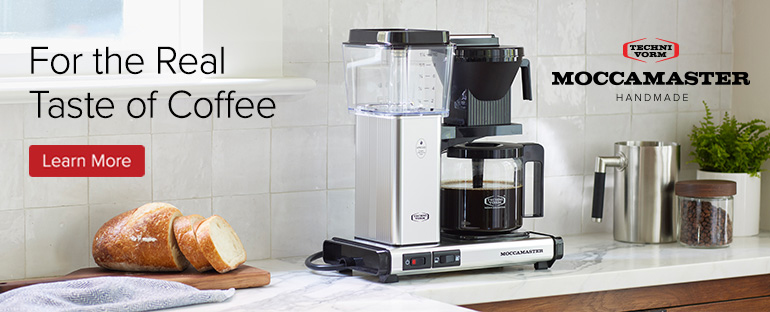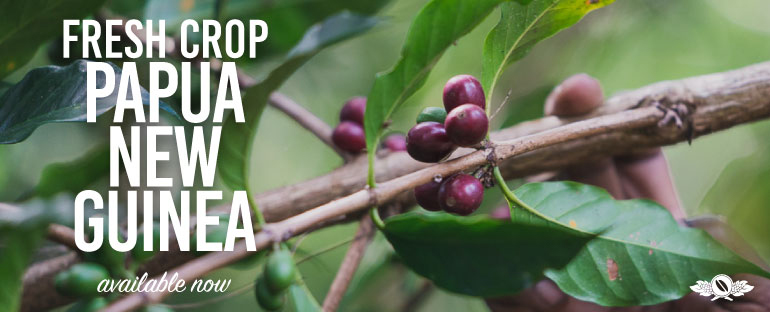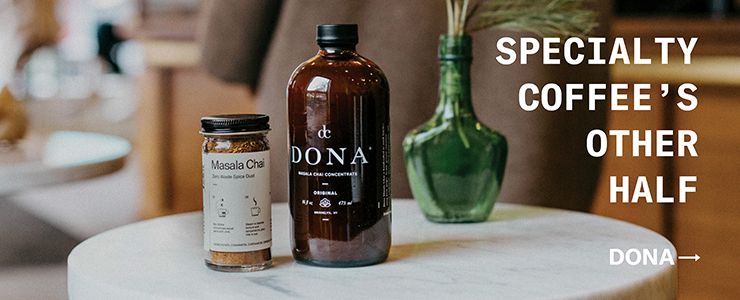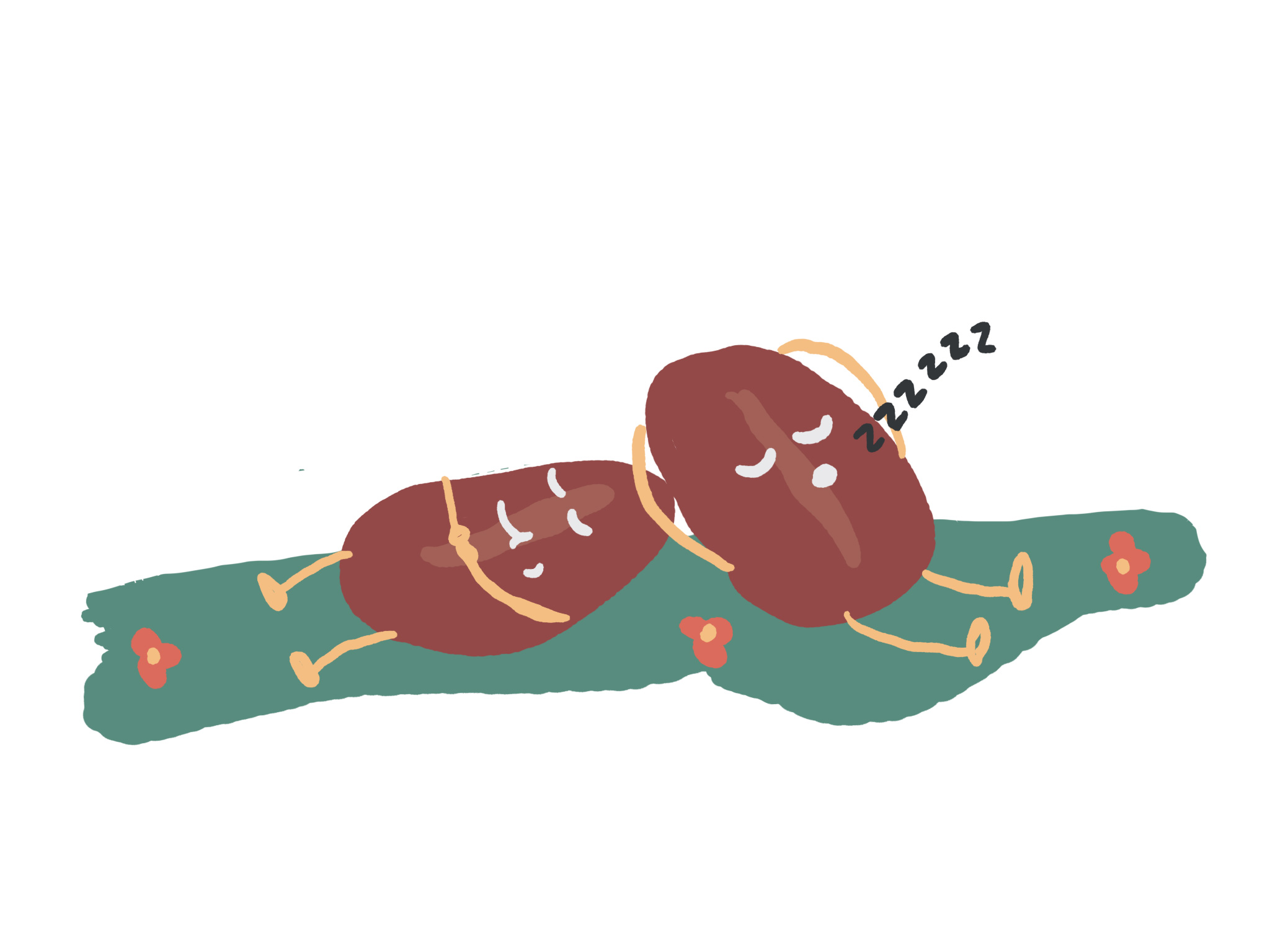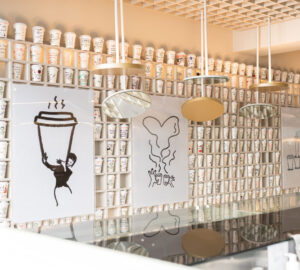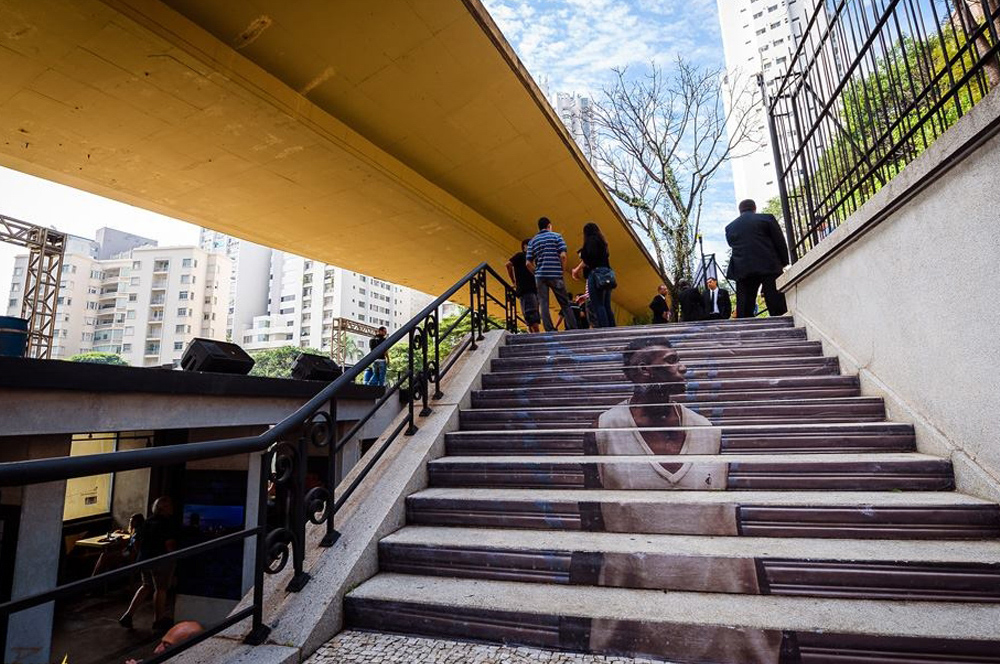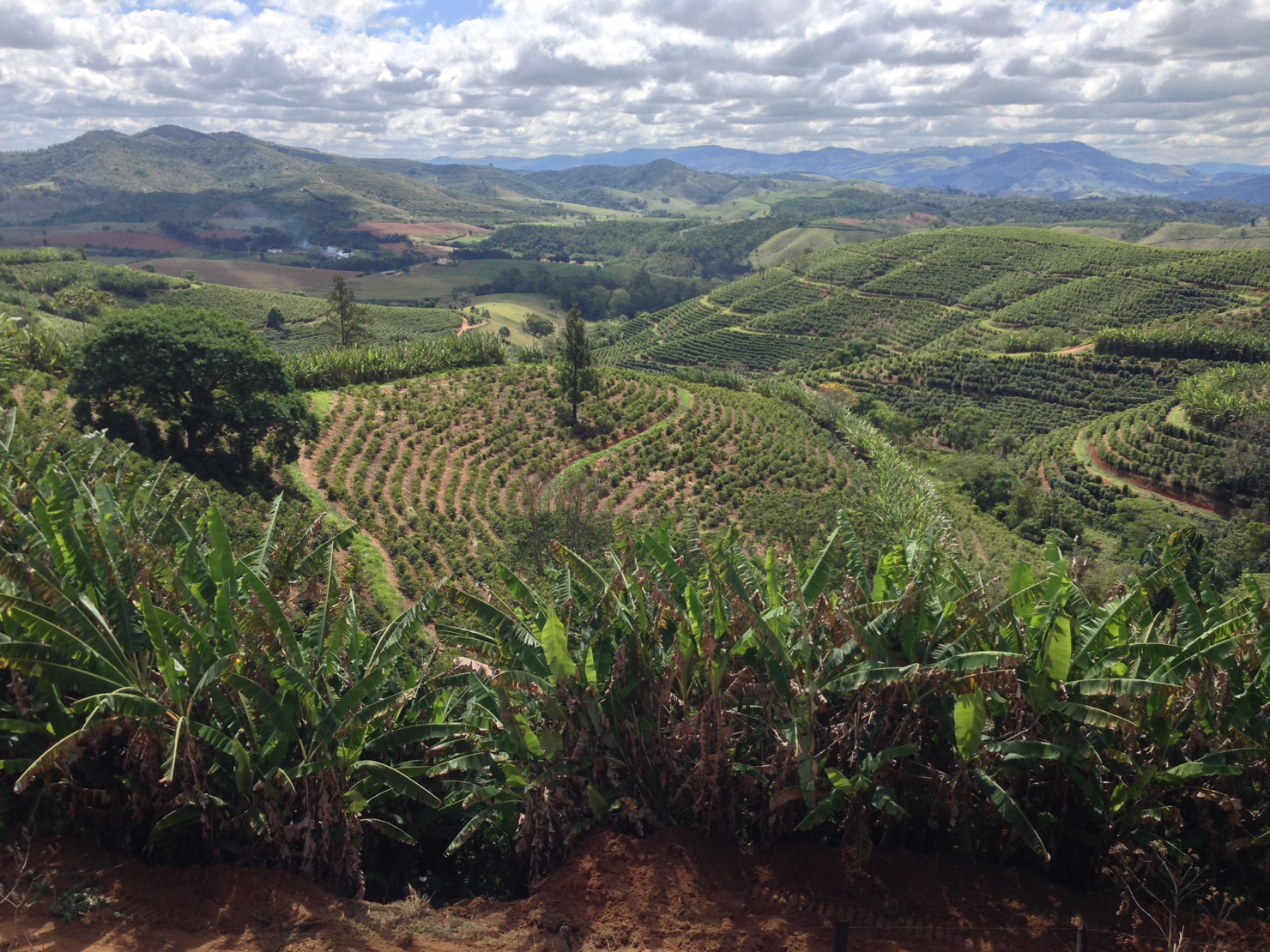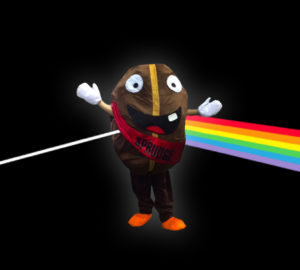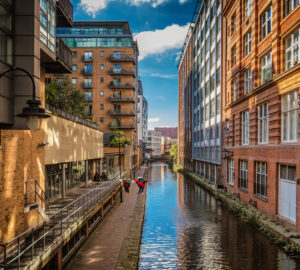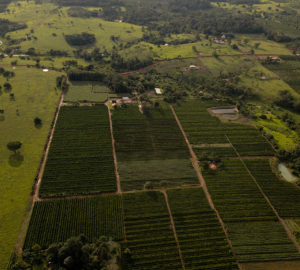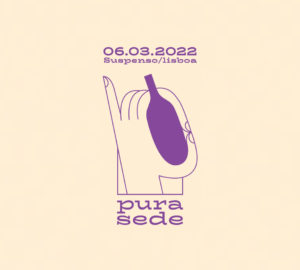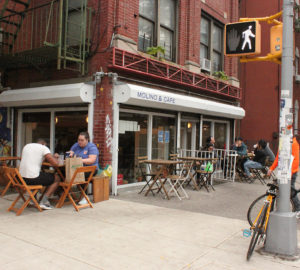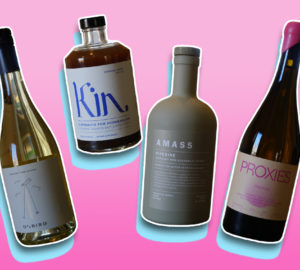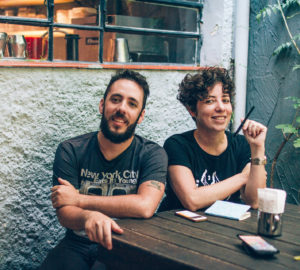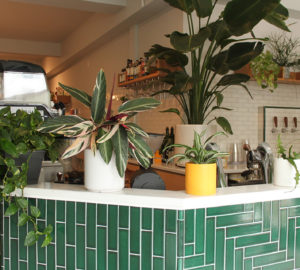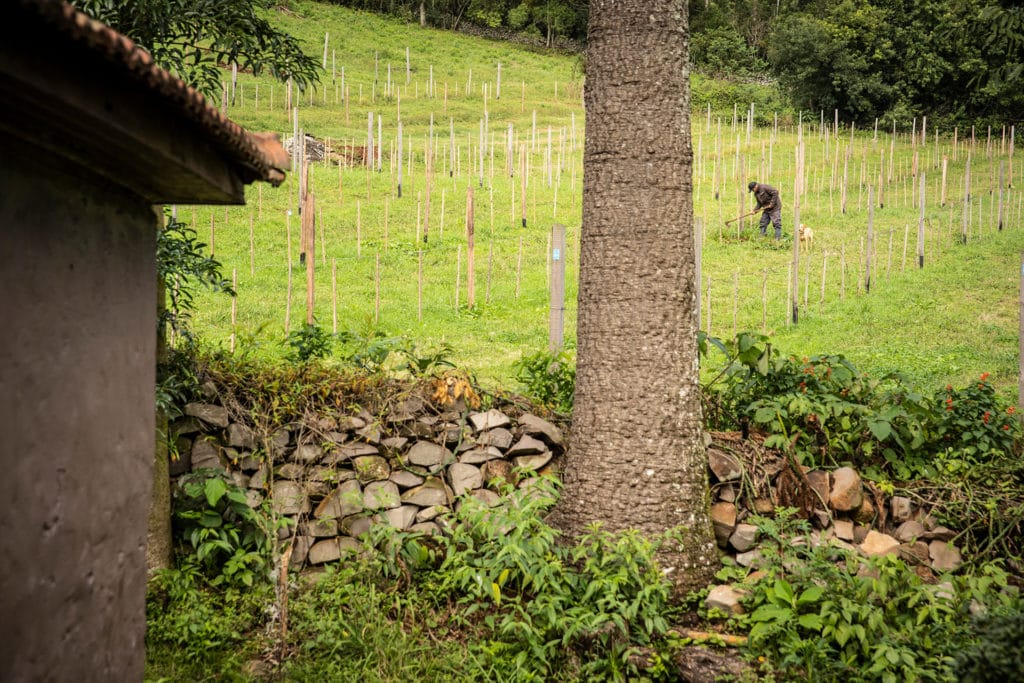
Beer brought them together, but it was natural wine that made them partners. Diego Cartier used to be a beer hunter for a subscription service in Brazil, which required him to travel to visit some of the best breweries in the world. Micael Eckert was one of the founders of Coruja, a craft brewery pioneer in the far south of the country.
When the natural wine scene started to here in Brazil—a process that is still very much underway—these two decided to combine the knowledge they had acquired in the past years to ferment a new idea. This is Vivente, the first (and so far the only) officially licensed natural winery in Brazil.
“Beers, wines, and ciders have a lot in common, especially when we are talking about spontaneous fermentation. The connection that wild yeasts provide is incredible,” says Cartier. But while in beer the ingredients are usually imported and standardized, in wine, it is only possible to know more about the grapes during the harvest. It was this discovery that brought the two together to create Vivente.
“I believe it was a natural migration. My favorite beers are Lambics and right on my first trip to Belgium in 2010 to visit some breweries, such as Cantillon and 3 Fonteinen, I got to know natural wines and it was a one-way ticket,” he explains.
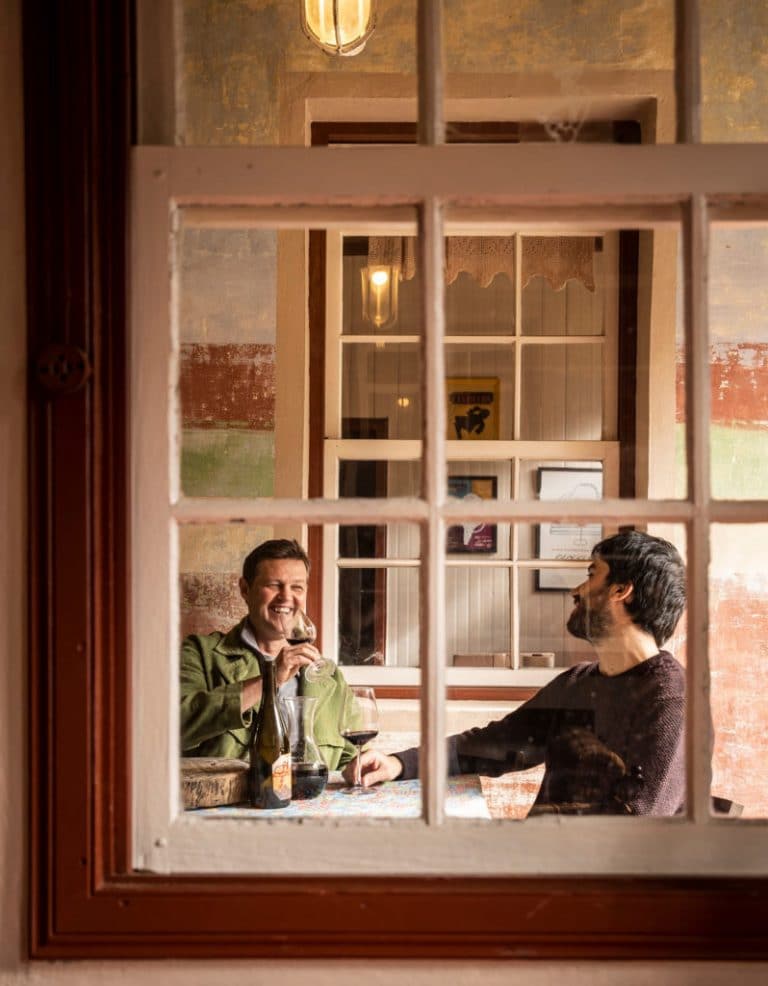
Based in Colinas, Rio Grande do Sul, a region known for being the main wine producer in the country (including well-regarded sparkling wines), they have taken an important step within a local movement. Brazilian-made natural wine is increasingly popular, but remains mainly restricted to the garages of amateur winemakers.
Although there are several self-described natural wine bars in large Brazilian cities—such as São Paulo and Rio de Janeiro—licensing for Vivente was a long work in progress. The Brazilian Ministry of Agriculture and Livestock and other authorities still have doubts about what constitutes a natural wine. “We are the second generation of winemakers in this movement that started in garages. We went into this project with heart, mind, and soul, so we decided to do everything right from the beginning,” says Cartier.
He tells me that the majority of the people were concerned not only about the natural vinification, but also the organic agriculture they were embracing. “In the minds of conventional winemakers and grape producers, it was impossible to do it that way. Today we see even some large producers also following this path. At the time, many people thought we were crazy,” he laughs. There is no official data on natural wines in Brazil, but the estimated number of producers is around 10. Projections are that the sector may expand along with the increasing production of organic vineyards in the country.
When they tried to register their first wines, Cartier and Eckert struggled with the regulatory bodies that did not understand how the ingredients were reduced to “spontaneously fermented grapes”—and nothing more. “They couldn’t understand how our sparkling wines had no added sugar,” he explains.
“Natural wine in Brazil is still a niche, but it is a path of no return,” defends Cartier. “We got in the wine lists of important restaurants that have excellent sommeliers that help to spread this counterculture of wines that are the pure expression of the fruit.”
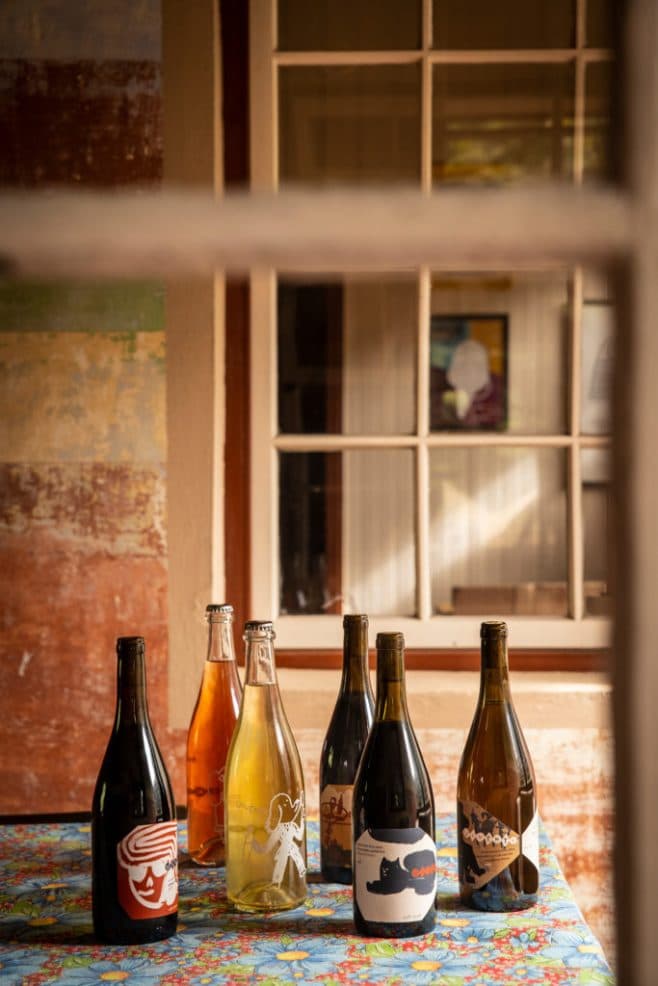
The nearly 7,000 liters produced by Vivente last year were all pre-sold to restaurants, grocery stores, and wine bars. The volume barely meets growing market demand. Currently, the partners buy their organic grapes from local vineyards to produce pet-nats (such as a Chardonnay/Pinot Noir and Cabernet Franc/Merlot) and other still natural wines, produced from grapes such as Pinot Noir, Cabernet Franc, and a macerated skin contact Sauvignon Blanc.
Two years ago, they started their own vineyard. “In our piece of land, we also grow other fruits like blackberries, raspberries, blueberries, and we have a garden to grow some vegetables for our own consumption,” explains Cartier. The property is located on the top of a mountain at 500 meters of altitude. “If all goes well, we should start harvesting and testing our own grapes in about three years,” he projects.
Eckert’s father is a farmer; he has always had a connection with the land. Growing grapes and producing wines that are their natural expression is also a way of continuing his relationship. The partners’ first tests started in 2017, when they produced some bottles as an experiment in Eckert’s basement. “We didn’t expect we would have such a huge feedback in such a short time. We have a lot more demand than we are able to produce and what we thought would take about five years to happen, happened right in the first year.”
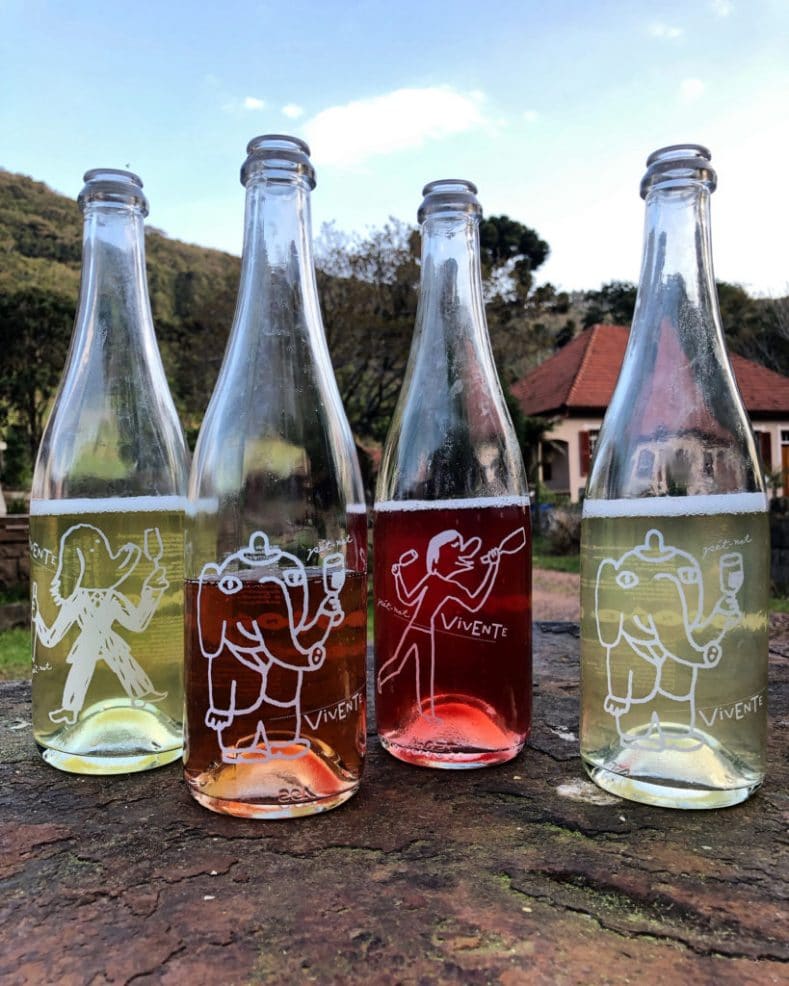
In 2020 they’ve produced larger variety of labels, among pet-nats from grapes such as Glera, Chardonnay, and Pinot Noir, as well as Muscat of Alexandria and a still Barbera. Vivente also offers a small line of craft ciders. “We like everything that ferments,” Cartier jokes.
The passion for fermentation brought them together, but t it was the idea of producing a spontaneous beverage, without any type of intervention, that brought them to natural wine. “We could hardly think that we would become the first natural winery in Brazil,” Eckert says.
And that they would pave the way for so many other producers that are yet to come.
Rafael Tonon is a freelance journalist based in Brazil. Read more Rafael Tonon for Sprudge Wine.
Photos by Marcelo Curia









